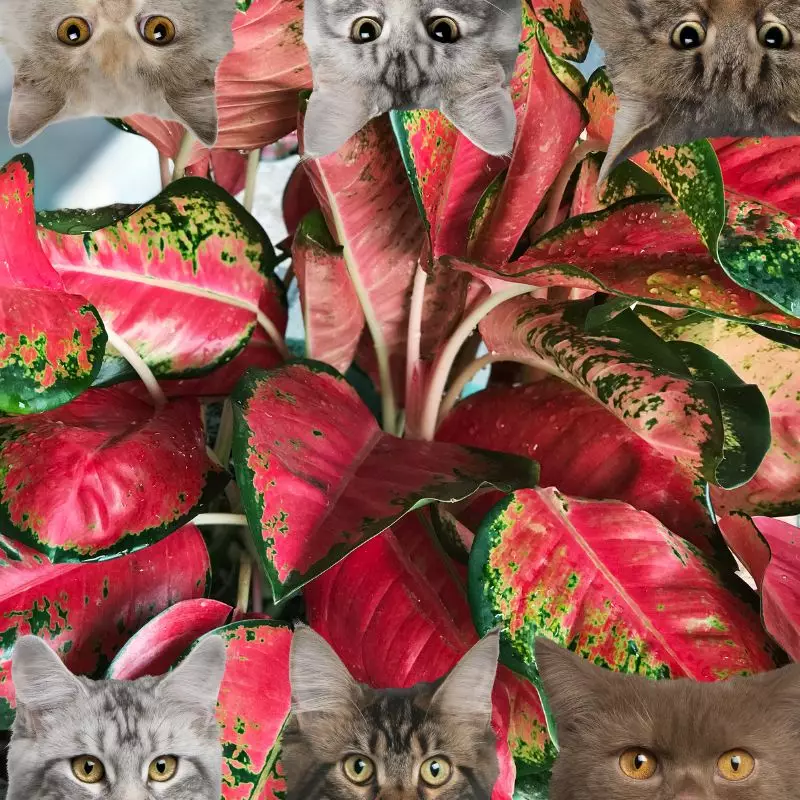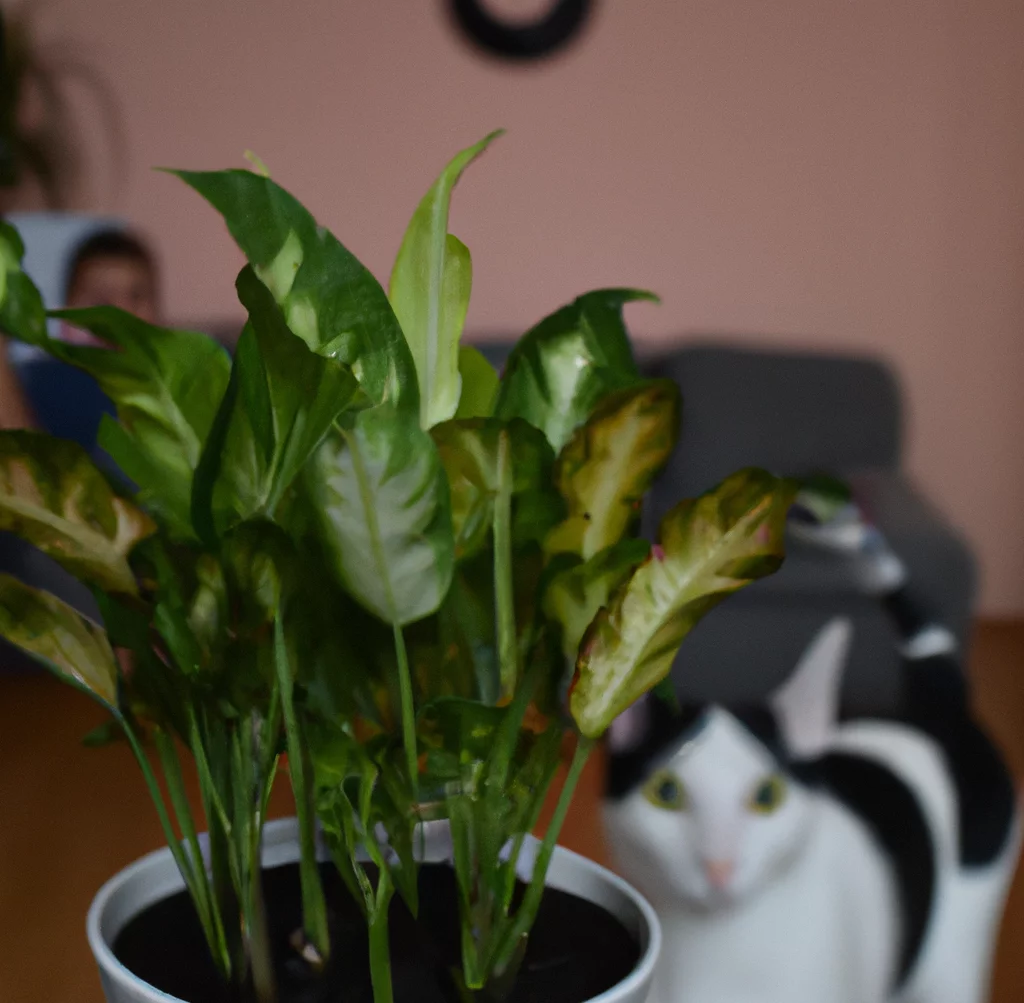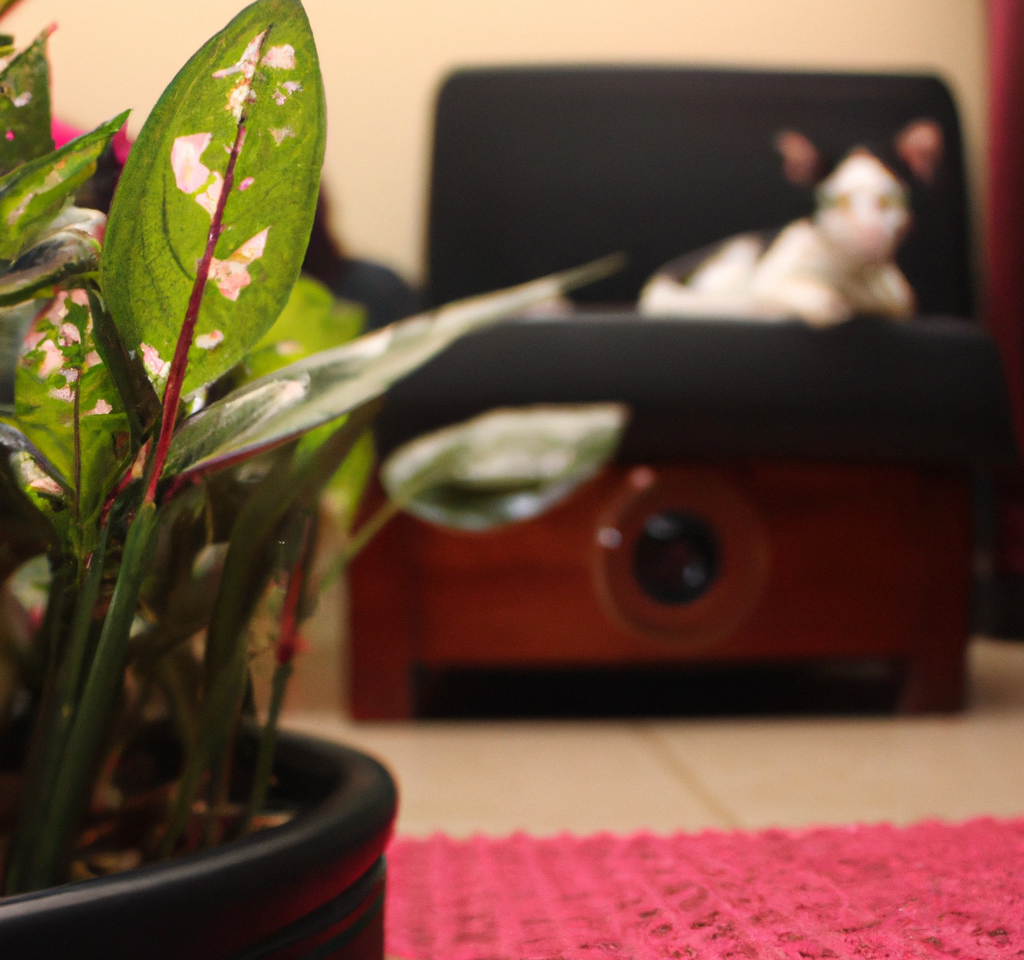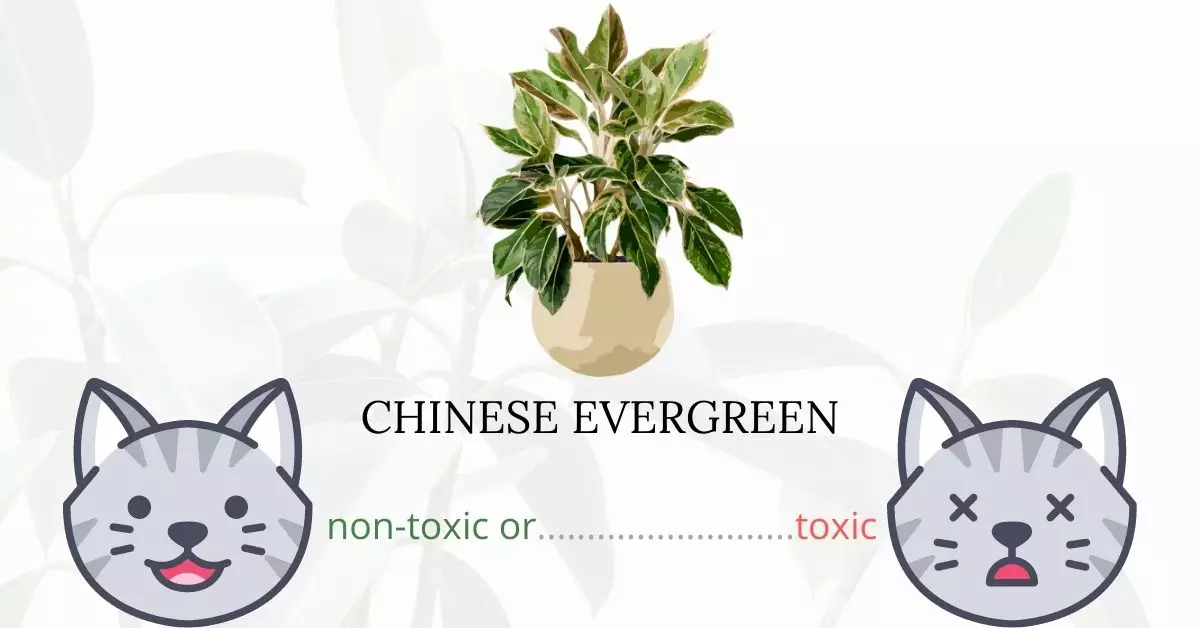Yes, the Chinese Evergreen, also known as Aglaonema, is toxic to cats. It contains insoluble calcium oxalates, which are commonly found in species that belong to the Araceae family.
This article was crafted in collaboration with a team of experienced DVMs (doctors of veterinary medicine). Their expertise ensures that we provide accurate and up-to-date information about the potential risks of various plants, in this case, the Chinese Evergreen, and their effects on cats. Additionally, for every plant we discuss, we have consulted high-authority websites such as the ASPCA and PetMD to ensure the most comprehensive understanding of the subject.
Clinical Signs of Chinese Evergreen Poisoning in Cats

When a cat comes into contact with, smells, or ingests the Chinese Evergreen plant, it may exhibit specific symptoms. Here’s a breakdown of each sign and the underlying reason:
- Inflammation of the Mouth: The insoluble calcium oxalates found in the Chinese Evergreen can cause immediate irritation to the cat’s oral tissues. As the cat’s body responds to this irritation, inflammation of the mouth can ensue.
- Oral Irritation: This is a direct response to the plant’s calcium oxalate crystals. When chewed or bitten, these crystals can penetrate the soft tissues of the mouth, leading to burning, pain, and other discomforts.
- Hypersalivation: As a defense mechanism, a cat might produce excess saliva to flush out or dilute any harmful compounds. The oral irritation caused by the Chinese Evergreen often triggers this response.
- Vomiting: If a cat ingests parts of the Chinese Evergreen, its body might attempt to expel the toxic substances by inducing vomiting. This is a natural protective response of the digestive system against harmful ingestion.
- Swallowing Problems: The irritation and inflammation caused by the plant’s compounds can affect the throat, leading to difficulty swallowing or a sensation of something being stuck.
It’s essential to recognize these signs early and consult a veterinarian if you suspect your cat has been exposed to the Chinese Evergreen plant.
First Aid and Treatment of Chinese Evergreen Poisoning in Cats

You can administer first aid at home by rinsing out the leftover plant in your cat’s mouth and thoroughly flushing it with water. Burning sensation and irritating pain can be reduced by giving your cat some calcium-rich foods like milk, yogurt, or cheese as calcium can precipitate some calcium oxalate crystals.
If symptoms do not go away or your cat is suffering from severe vomiting, diarrhea, and breathing difficulty, bring your cat immediately to the veterinarian for proper treatment.
Recovery from Chinese Evergreen Poisoning in Cats

Most cats recover fully from Chinese evergreen poisoning within 12 to 24 hours and as long as it was immediately treated. However, in some severe cases, permanent liver and kidney damage may occur. Take preventive measures to avoid another Chinese evergreen exposure.
Prevention of Chinese Evergreen Poisoning in Cats
If you have Chinese evergreen at home, place it somewhere where your cat cannot access it. Or you can also remove it to alleviate your worries of getting your cat poisoned. You can try growing other non-toxic plants that your nibbler cat can graze on. Keep your cat entertained inside your home to minimize his or her time outside your home.
If you love plants but have cats at home, check out these lists:





